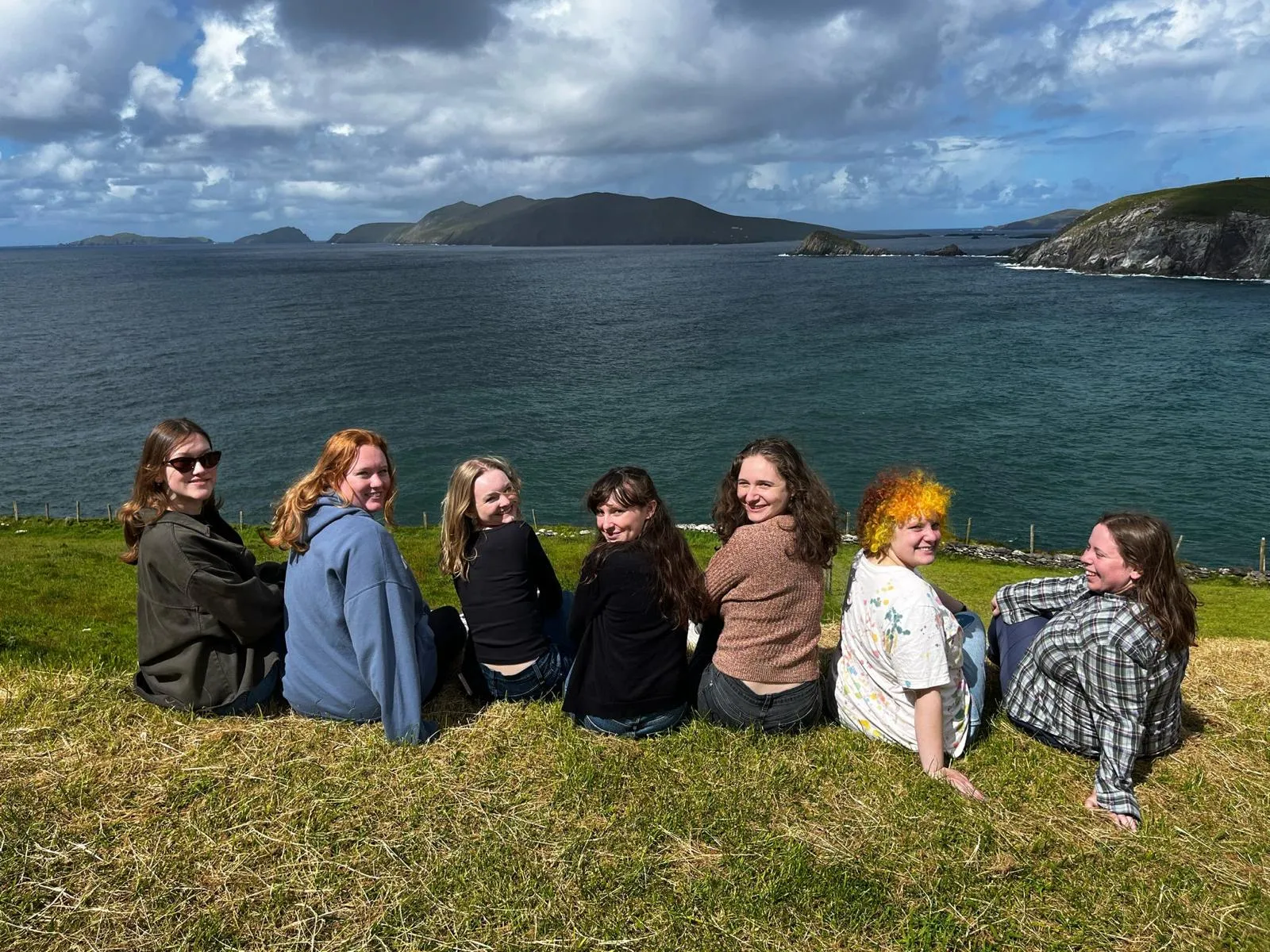
Summer in Ireland
Tulane's Summer in Dublin study abroad program offers students an immersive cultural experience while exploring the rich history and vibrant contemporary life of the Emerald Isle.
Cleo Doran (SLA ‘25)
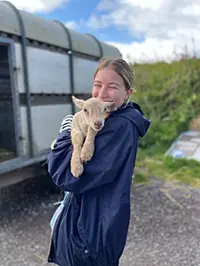
As someone with Irish heritage and citizenship who had not previously visited the country, my hope was that this program would offer a comprehensive introduction to the island and its culture. I can confidently say that this program succeeded in offering that type of immersive education. I feel most thankful that I was able to participate in a program that offered intellectual stimulation and meaningful instruction as well as genuine fun and independent exploration.
The Summer in Dublin program is truly a highlight of my Tulane experience so far and I would enthusiastically recommend it to anyone looking for a fun, immersive, and enriching summer study abroad experience.
Annabelle Jones (SPHM ‘26)
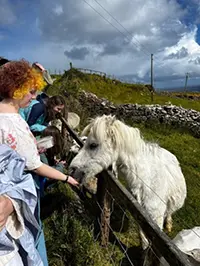
This summer I went to Dublin, Ireland to study anthropology. The highlight of the trip was getting to see a variety of different historical and archaeological sites. The country is small enough to make cross-country trips manageable, so we were able to visit multiple sites each day.
The experience was incredibly unique in that I was able to learn in a new and exciting way. From traditional storytellers to museum exhibits, there were many opportunities to learn and grow. It was amazing to see the things I studied in person, making the material much more tangible and relevant.
Students are given a plethora of information through all forms of media, books, videos, and lectures. This allows different types of learners equal opportunity to grasp the history. We were provided tickets for guided tours, museums, and field trips; all of which were a joy to be a part of.
Syd Stone (SSE ‘27)
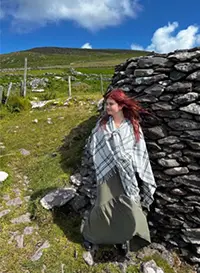
This summer I had the privilege of joining Tulane’s study abroad program. During the trip, I attended all of the history classes offered in Dublin, Ireland. These classes, “Protest, Prohibition, and Prostitution” and “Irish Culture, History, and Society,” were so fun and enlightening. I do not exaggerate when I say these classes were the highlight of my summer.
I am also a history major who has always been fascinated by Irish history and culture. Because of this program, though I am only a sophomore, I am already halfway to my degree..
This program was incredible and I highly recommend everyone try it.
Leah Starr ( SLA ‘25)
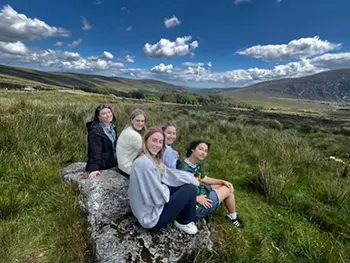
I didn’t originally plan on choosing the Summer in Dublin program for my summer study abroad experience, however I am extremely glad I did.
Even though I am not a history major, I really enjoyed the two history classes I took on this trip. We had a field trip almost every day, usually multiple trips in a day. We also took a four-day fieldtrip around southern Ireland and a day trip to Belfast. All of these trips gave me the opportunity to experience more of Ireland than I could have on my own.
Mandel Palagye Program for Middle East Peace
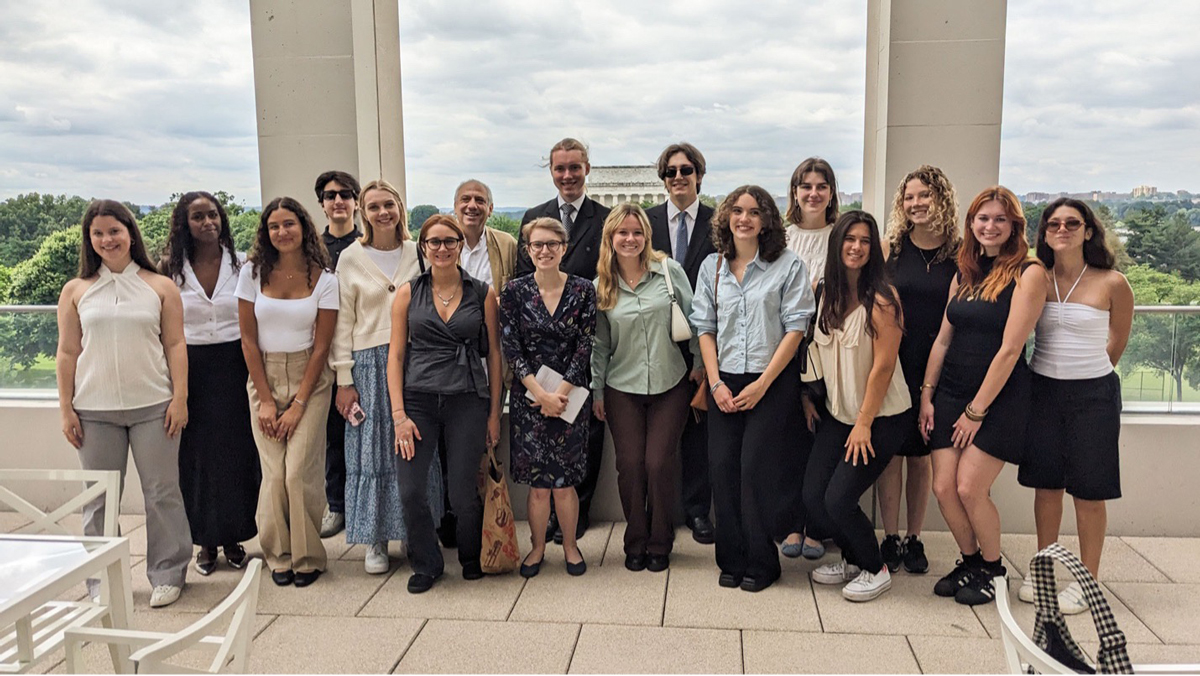
The Stacy Mandel Palagye and Keith Palagye Program for Middle East Peace offers students an opportunity to learn about the complexities of the region’s long-standing conflict in association with non-governmental organizations, think tanks, and academic institutions.
Laura Brawley (SLA ‘26)
Learning about the conflict from these three different perspectives helped us to immerse ourselves not only in the historical facts and peace theories related to the conflict but in the lived experiences of Palestinians and Israelis through Arab and Israeli film and literature.
The intensive nature of the classes led to many late-night conversations with my classmates about the readings and homework, as well as our own changing perspectives related to the conflict. Being able to engage in these discussions with my classmates was one of the most beneficial parts of the program, as we were able to learn from each other.
We even got the chance to speak to Palestinian and Israeli politicians, as well as senior Huffington Post Correspondent Akbar Shahid Ahmed. Hearing from the experts during this period of violent conflict was as sobering as it was enlightening, and highlighted how brutal the reality is on the ground for long-suffering Gazans. Hearing from Amal-Tikvah, an Israeli/Palestinian grassroots peace organization, was particularly inspiring. The women who spoke to us had lost so many people and witnessed so much suffering but remained committed to the peace process through their work.
Adrian Serieyssol (SLA ’27)
This summer I had the pleasure of taking part in Tulane’s Mandel Palagye Program for Middle East Peace with 14 other Tulane students. Over the course of four weeks, we learned not only about the roles of modern-day actors in the conflict between Israel and Palestine but also about theories of conflict resolution and the history of the entire region, going back to the Philistines. At the start of the program, few of us knew one another, but after the first two weeks of the Tulane campus portion, we had grown to become friends.
After two weeks of classes in a familiar environment, we flew to Washington, D.C. If not for the October 7th attacks, the second half of the program would have been held in Israel. Instead, we spent our time in D.C. visiting think tanks and hearing brilliant people talk about how they see the conflict. My personal favorite was The International Crisis Group. It was great to explore our beautiful capital.
Environmental Studies in Ecuador

The Tulane Initiative for Education, Research, and Action (TIERA) is a unique program based in Ecuador designed to equip students with the knowledge and skills necessary to address complex social challenges.
Jude Hutkin (SLA ’26)
To learn from other individuals halfway across the world is a special thing. Not only was I able to learn in this respect but I was also able to teach. Fellow scholars and I performed a climate change workshop where we educated the local community about climate change’s causes, effects, ways of mitigation, and the role of carbon in it all. The presentation was quite fulfilling knowing we were giving back to the community in terms of education, and not only extracting information for our own projects.
You truly never know where you will end up with environmental studies. One summer I was studying plants and their uses for sustainable infrastructure and the next I was performing interviews with Ecuadorian landowners while measuring carbon storage on reforested plots of land!

